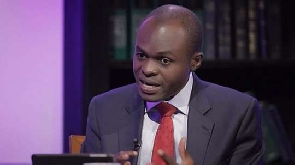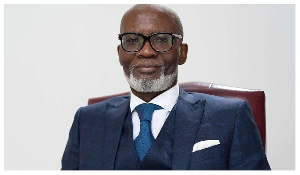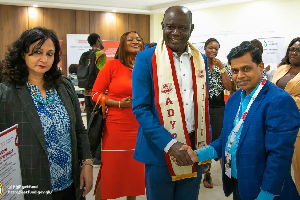• Lawyer Martin Kpebu has waded into the Achimota-Rastafarian case
• According to him, the legal battle was “too plain” for a court dispute
• The court on Monday ruled that Tyrone Marhguy and Oheneba Nkrabea cannot be denied admission on the basis of their hairstyle
Private legal practitioner Martin Kpebu has described the case between the Rastafarian boys and Achimota School as “too plain” for a court dispute.
The Achimota School refused to enrol two students because they had dreadlocks. The school through the Attorney General argued in court that allowing the students into the school will have dire consequences on the school’s discipline, health, tradition, and community cohesion.
This development made the families of the two boys, Tyrone Marhguy and Oheneba Nkrabea, pursue legal action against the school.
As of May 31, 2021, an Accra High Court ordered the Achimota School to admit the students.
Speaking to Citi News after the court ruling, the Private Legal Practitioner, Martin Kpebu, argued that the “constitution is clear in Article 28 and 21 that you don’t use somebody’s religion to discriminate against the person. Article 21 is clear that there is freedom of religion.”
He added that “for the avoidance of doubt, Article 28 makes it clearer that don’t deprive a child of education, medical treatment, or any social or economic benefit on grounds of the religion of the child.”
Mr. Kpebu praised the jury for their verdict which favoured the Rastafarian boys, stating that “it is good that the judge has upheld the law.”
On the issue of uniformity in schools, Mr. Kpebu said “the law for good reasons has made a religious exception.”
Martin Kpebu says the Rastafarian boys’ case against Achimota was solely on religious grounds, hence “if someone comes [with the dreadlocks] for religious purposes but it is not what I like personally, that is what we have subscribed to; that means our constitution gives that freedom even though sometimes we have personal opinions.”
“Let’s allow the constitution to lead,” he advised.
The Judgement
Delivering the judgment on the case of two Rastafarian boys, Justice Gifty Agyei Addo held that the Attorney-General failed to provide a legal justification as to why the rights of the two Rastafarian students to education should be limited on the basis of their dreadlocks.
The Attorney General subsequently argued in Court that the Rastafarian students had not even completed or returned their acceptance of admission forms and could thus not be deemed to have been denied the admission.
Justice Gifty Adjei Addo disagreed with the submissions of the Attorney and granted all the reliefs separately sought by the students, save for the relief of compensation in the case of Tyrone Marhguy.
According to Justice Addo, it is preposterous for the Attorney General to have even suggested that the two were not students in the first place.
Justice Gifty Adjei Addo consequently directed Achimota School to admit the two Rastafarian students.
General News of Tuesday, 1 June 2021
Source: www.ghanaweb.com













